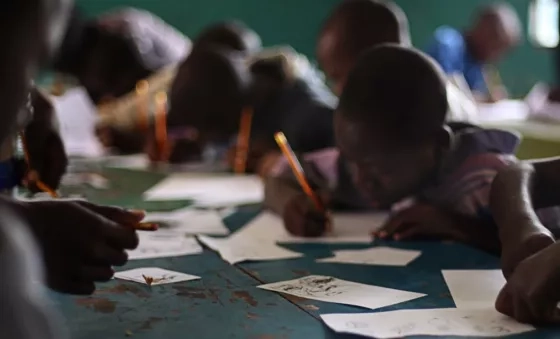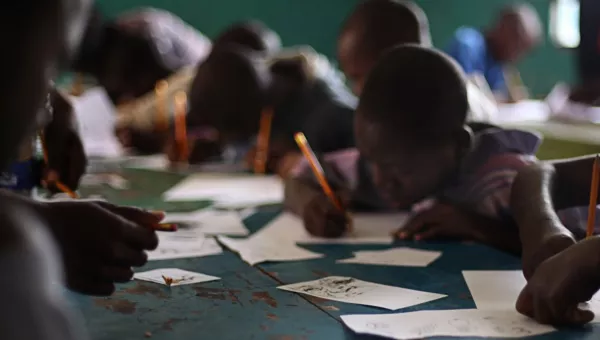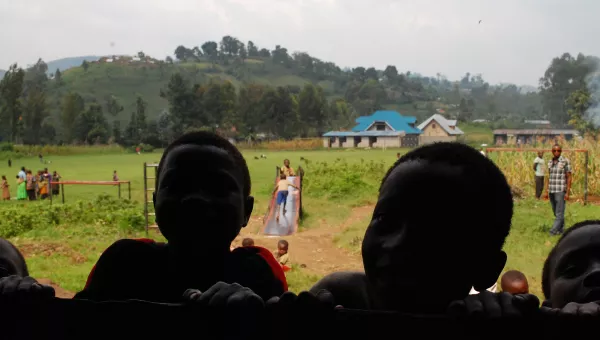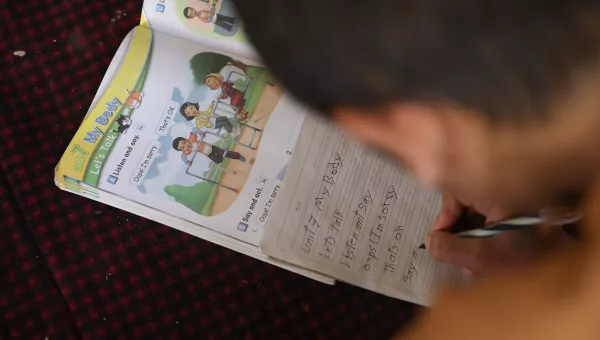In all the conflicts we work in, children and young people end up in armed forces or groups.
Even if this group remains a minority compared to the larger group of conflict-affected children and youth, supporting their reintegration and the prevention of further recruitment is crucial for peacebuilding and longer-term stability. Still, thousands of boys and girls are left without support sometimes pushing them to return to the armed force or group or exposed to further risk of abuse and exploitation.
Reintegrating conflict-affected children and young people is crucial for peace, local development, and long-term stability. Yet funding is short-term and insufficient, and programmes often fail to consider the needs and capacities of those most important – affected children, young people, and their communities.
What is Reintegration?
“Reintegration is the process through which children transition into civil society and enter meaningful roles and identities as civilians who are accepted by their families and communities in a context of local and national reconciliation.” - The Paris Principles: Principles and Guidelines on Children Associated with Armed Forces or Armed Groups, 2007.
The experience of children and young people in armed forces and groups is highly context-specific. There is no one size fits all model for reintegration but there are some universal principles.
A key principle is the need to support the child in adapting their identity outside of the armed group or force, to reconnect them with their family and community and in doing so, enable them to find a positive role to play outside the armed group or force. Another one is the need for family and community acceptance. Research, in fact, shows that community acceptance is the most important factor in children and young people’s recovery and reintegration and far more important than the levels of violence lived while with the armed group.
Finally, reintegration means ensuring that children associated with armed forces or groups have the same opportunities as children of the same age from the same communities who were not associated.
What we do
For reintegration to be sustainable, children, young people and their communities need to be at the core of the process. Our role is to support the community in reintegrating their children.
Before anything else, we listen and learn from them, then we support them in appropriate ways. This support can include providing children who are coming straight from armed forces or groups with immediate assistance, such as health checks and clothing, reuniting children separated from their families, providing mental health and legal support or supporting them back into education. Older children are also given vocational or work skills training, to present them with future opportunities.
We work with communities, families and teachers to ensure that children are accepted back into their communities and supported to be children again.
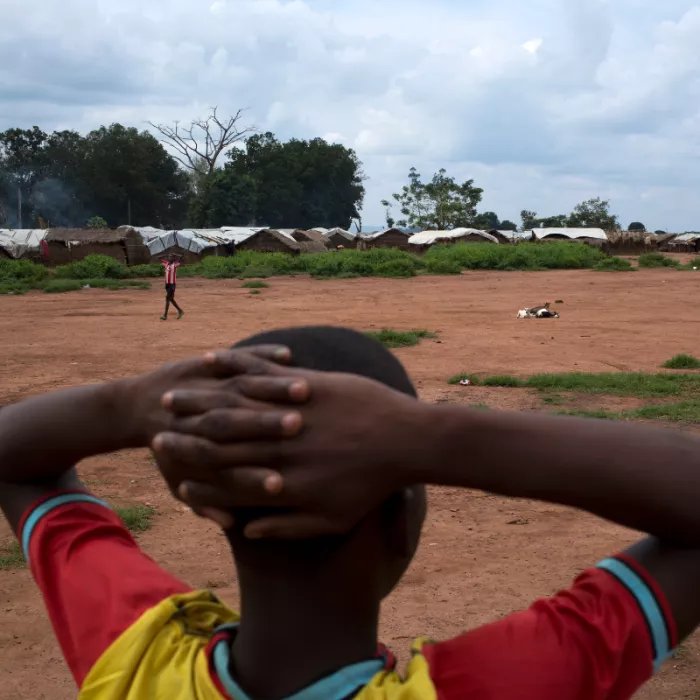
I am happy I can go to the War Child child-friendly space and take part in the activities. When I am there, I can forget my troubles for a while. When I see other kids playing football, I can’t sit still, I have to join them. I just love playing football, it’s what makes me happiest.Frederique, Central African Republic.
Our reintegration programmes
For the past seven years, we have been supporting the reintegration of thousands of conflict-affected children and young people in the Central African Republic and the Democratic Republic of Congo. We are currently preparing to start work in Iraq and Yemen. In Afghanistan, we also support the reintegration of unaccompanied minors who, after having migrated to Iran to look for work to support their families, get deported by the Iranian government.
Community-based reintegration and security in the Democratic Republic of Congo
Between 2019-2021 we piloted an innovative way of supporting reintegration we call Community-based Reintegration and Security (CBRS) in Kibabi, Masisi territory, a mountainous area in north-eastern Democratic Republic of Congo with several active armed groups. CBRS is designed to be planned, implemented, and monitored by local actors. As part of the planning process, communities, children, youth, local government, and civil society come togethor to determine pathways for change, design their own longer-term plan and then advocate for support for its implementation. The community named their efforts Inuka Kibabi, meaning “Stand-up Kibabi”.
The approach is holistic in that it not only invests in the socio-economic well-being of affected children and young people, but also in the social, economic, and security environment surrounding them.
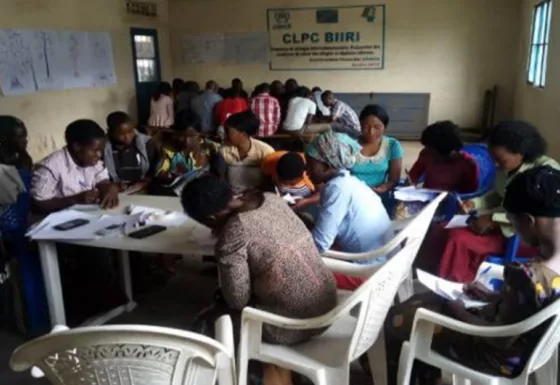
Youth-led micro-projects in the Central African Republic
To allow conflict-affected children and young people to find a positive role in their community, in the Central African Republic we support them to identify their priorities in terms of children and young people’s reintegration, develop solutions, and implement these themselves. Supported by community members, they build concrete benches around community health centres and the mayor’s office to prevent tensions and conflict from people standing up waiting for long periods of times. They have also rehabilitated school classrooms and built an area for children and young people to gather, exchange ideas and learn from each other to improve relations between youth from different ethnicities.

